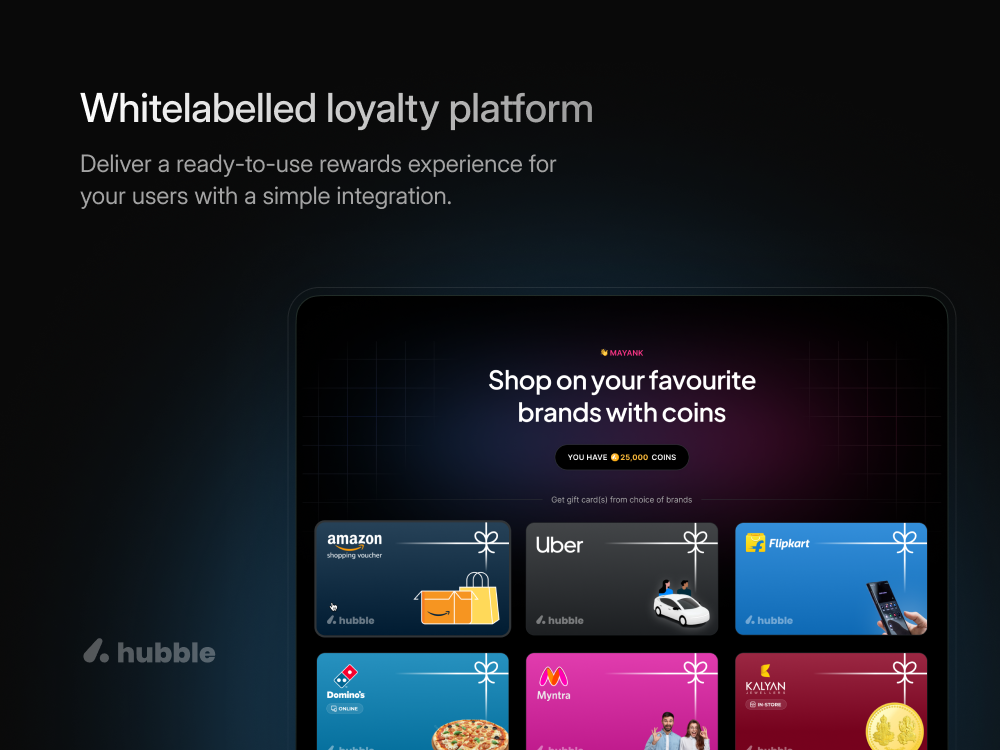Loyalty Tax, Compliance & Fraud - What Brands Must Know in 2025


Loyalty tax, compliance & fraud are now central considerations for brands operating rewards programs in 2025. With tightening global regulations and evolving threats, the world of loyalty has shifted from being just a marketing function to a compliance-sensitive domain, where failure to act can lead to financial penalties, reputational damage, or worse: loss of customer trust.
In India, Section 194R of the Income-Tax Act, introduced with enforcement from July 2022, triggered widespread confusion. It mandates that rewards and benefits (including loyalty rewards) offered to individuals in the course of business or profession are subject to a 10% tax deducted at source (TDS). This dramatically changed routine loyalty mechanics for brands operating in the region, from B2B sales incentives to employee recognition schemes.
India isn’t alone. A 2023 PwC analysis forecasted that more than 25 countries are actively reviewing digital loyalty tax treatment, each with varying levels of enforcement and clarity. In the EU and Australia, carbon credit rewards and crypto-based incentives are now being scrutinized under Commodity and Capital Gains frameworks respectively. And in the United States, IRS Notice 2010-19 which allows many loyalty rewards to be treated as non-taxable "rebates" is under review amid calls to reassess tax fairness in personalized incentive ecosystems.
The tax conversation is no longer about informal practices. It’s about documented values, audit trails, and the ability to demonstrate intent and treatment of each reward unit issued. For global brands, these local nuances now require fully auditable systems, robust classification logic, and scenario planning tightly integrated into their loyalty platforms.
Know Your Participant (KYP)
As loyalty programs take on more B2B, peer-to-peer, and value-exchange capabilities, they’re being roped into the world of financial services-style compliance. This shift is especially pronounced in sectors like travel, banking, and platform loyalty ecosystems, where participants aren't just “members,” but also participants in value storage and transfer systems.
In 2024, Australia’s AML/CTF regime began including “value-stored facilities,” and regulators in Singapore and the UK have initiated inquiries into platforms offering digital wallets or points with quasi-currency characteristics. This raises requirements for KYC (Know Your Customer) or KYP (Know Your Participant), especially where redemption flows include prepaid cards, cross-border gift cards, or tokens convertible to cash equivalents.
Modern solutions require:
- Participant verification steps embedded in onboarding or high-value reward thresholds
- Real-time reporting of suspicious behaviors or redemption patterns
- Geo-fencing and market-level configurations to meet local compliance standards
Key challenge: Legacy systems, spreadsheet-based reconciliation, and weak audit trails are now key risk factors for large consumer brands. Legal and IT teams are quickly realizing that loyalty infrastructure must be audit-ready, exportable, and dynamically configurable by jurisdiction.
Fraud: Threat to Loyalty Value
According to the Association of Certified Fraud Examiners (ACFE), loyalty fraud is one of the fastest-growing financial threats, with reported attacks surging over 89% globally between 2020 and 2023. The average estimated loss? Approximately 3-5% of issued loyalty program value each year, which are mostly invisible until redemption occurs.
Popular attack methods include:
- Account takeovers, where attackers gain access to dormant accounts with point balances and redeem via e-gift cards in seconds.
- Fake identities, used to accumulate rewards across thousands of fake accounts exploiting signup offers or referral bonuses.
- Internal fraud, where employees manipulate redemptions, override limits, or create ghost transactions for rewards.
In heavily (regulated sectors such as finance, pharmaceuticals, and government-based loyalty programs) fraud overlaps with compliance, triggering double exposure. This compels brands to prioritize fraud prevention not merely as a tech feature, but as a core program governance pillar.
Modern loyalty fraud defenses go beyond simple username/password protections:
- Behavioral analytics to detect unusual redemptions or login patterns
- Tokenized rewards with expiration dynamics linked to verified usage history
- AI-powered fraud scoring systems trained on transaction patterns and device identifiers
- Employee access controls with role-based permissioning and full audit trails
Any serious loyalty program operating in 2025 should be deploying near real-time fraud detection and responsive action mechanisms. Static reports reviewed monthly are simply too slow.
What Brands Must Do
To treat loyalty as a compliance-sensitive capability, organizations must raise both system controls and organizational literacy. This means that loyalty is no longer managed exclusively by marketing. Legal, finance, and risk departments now play central roles in program design, intelligence frameworks, and reporting systems.
At a minimum, brands should now be:
- Cataloguing all reward types with a tax and regulatory treatment per country or region
- Embedding KYC/KYP features where value exchange or storage exceeds statutory thresholds
- Auditing points issuance and redemption logic with complete ledgers and data exports
- Engaging tax advisors early when launching new reward formats (crypto, carbon credits, prepaid cards, etc.)
- Partnering across departments to install real-time fraud monitoring and threat response protocols
As loyalty programs evolve to become profit centers and data assets, the ability to operate transparently and compliantly determines whether their value can scale.
What the Future Holds
Looking ahead, brands should expect regulatory expectations to rise. Anticipated trends through 2026 include:
- Integration of RegTech APIs into loyalty platforms for real-time screening (e.g. OFAC list checks in B2B schemes)
- Blockchain-powered audit trails for transparency and trust in public-sector incentive programs
- KYC-grade participant onboarding in travel, crypto rewards, and high-volume gig loyalty ecosystems
- Mandated disclosures of reward value in financial statements for publicly traded companies
Programs slow to adapt will be at competitive and operational disadvantage, particularly in international markets.
Hubble helps leading brands solve complex compliance, tax, and fraud challenges in loyalty with enterprise-grade infrastructure that’s built for real-time risk management, not just marketing performance.
With built-in fraud protection and audit-ready data architecture, Hubble ensures that your loyalty stack meets the business and regulatory demands of 2025.








